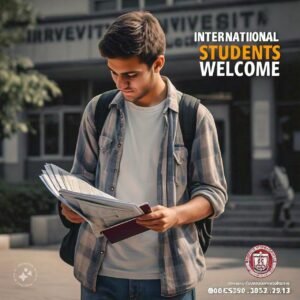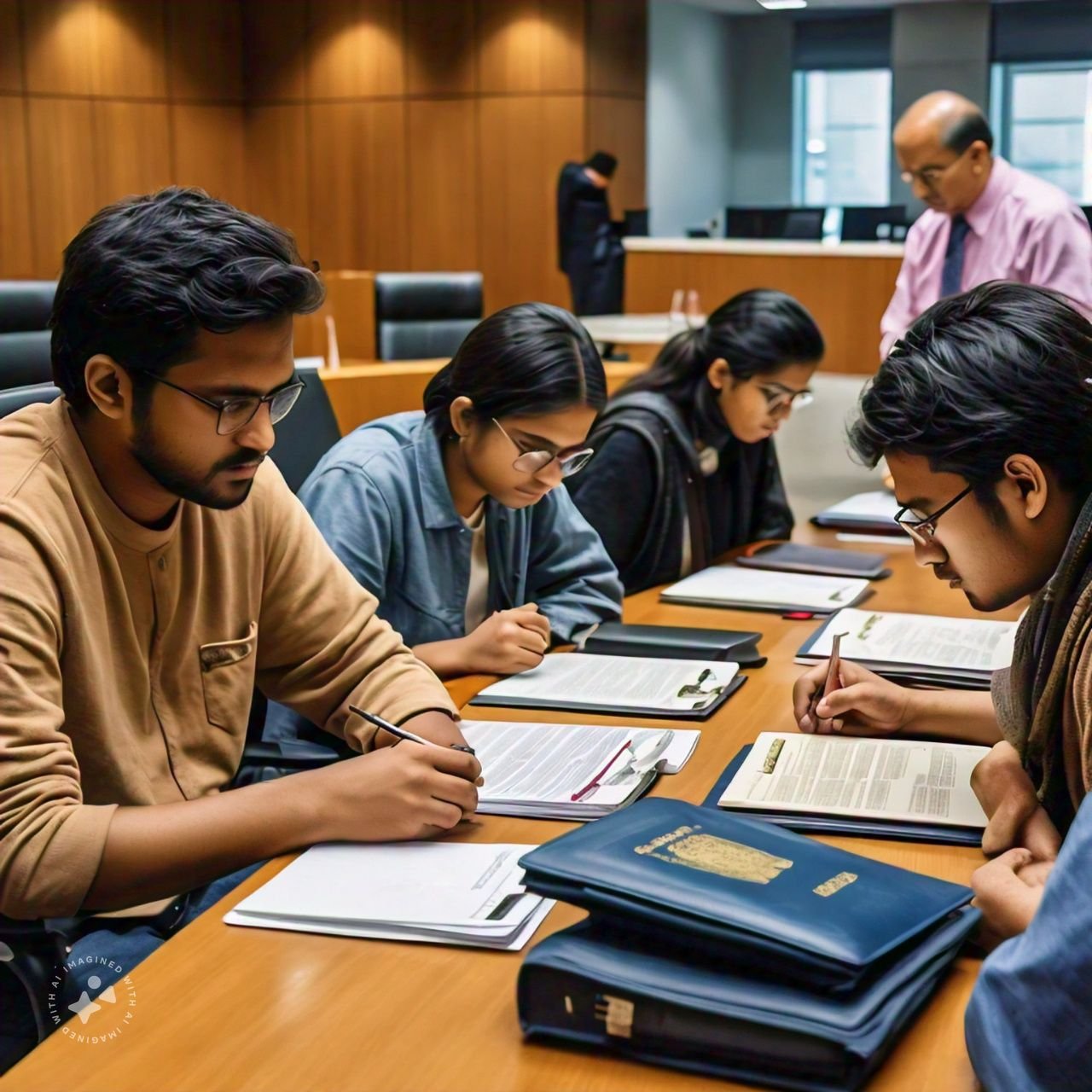Introduction
Student visas are essential for those seeking to study abroad. They allow international students to attend educational institutions in another country. Obtaining a student visa is crucial for legal entry and residency during your studies. The process involves several steps and requires meeting specific eligibility criteria. Understanding these requirements helps ensure a smooth application process.
Student visas grant you legal status to live and study in the host country. They are usually valid for the duration of your educational program. Each country has its own visa regulations and requirements. These may include proof of acceptance from an educational institution and financial stability. English proficiency tests are often required, depending on the destination.
Navigating the student visa application process can be complex. You need to gather and submit various documents, and sometimes attend an interview. Timely application submission is crucial to avoid delays. This guide will provide a comprehensive overview of obtaining and managing a student visa. It will cover everything from eligibility requirements to maintaining your visa status effectively.
read more : Types of Academic Scholarships
Eligibility Requirements
To apply for a student visa, you must meet specific eligibility criteria. First, you need an offer from an accredited educational institution. This offer confirms your acceptance into a recognized program of study. Many countries require proof of sufficient financial resources to cover tuition and living expenses. You must demonstrate that you can support yourself financially during your stay.
Proof of English proficiency is often necessary. This is usually done through standardized tests such as IELTS or TOEFL. Additionally, some countries may ask for academic transcripts or certificates from previous studies. You may also need to provide a valid passport that remains valid for the duration of your studies.
It is important to show that you intend to return to your home country after completing your studies. This might involve providing a statement of purpose or evidence of ties to your home country. Each country has its own set of requirements, so carefully review the specific criteria for your intended destination. Meeting all these requirements ensures a higher chance of visa approval.
Application Process
The application process for a student visa involves several key steps. Begin by gathering all necessary documents, including your acceptance letter from an educational institution. Ensure you have proof of financial resources to cover tuition and living expenses.
Next, complete the visa application form specific to your destination country. Many countries offer online applications, but some require in-person submissions. Submit the completed form along with your supporting documents.
Some countries may require an interview or biometric data as part of the process. Prepare for the interview by reviewing your application and supporting documents.
After submission, monitor the status of your application regularly. Check for any additional requests or updates from the immigration authorities. Be patient, as processing times can vary depending on the country and application volume.
If your application is approved, you will receive your student visa, allowing you to enter and study in the host country. Follow any instructions provided for visa collection and activation. Complete the process well before your planned start date to avoid any last-minute issues.

Necessary Documents
When applying for a student visa, you need to provide several key documents. Start with a valid passport that remains valid throughout your studies. Your passport should have sufficient blank pages for visa stamps.
Include a letter of acceptance from your chosen educational institution. This letter confirms your enrollment in a recognized program. You will also need proof of financial resources to cover tuition and living expenses. This can be bank statements, scholarship letters, or financial guarantee forms.
Prepare proof of English proficiency if required. This is usually demonstrated through standardized tests like IELTS or TOEFL. Additionally, you may need to submit academic transcripts and certificates from previous studies.
Some countries require a medical examination report or a police clearance certificate. Ensure these documents are up-to-date and meet the specific requirements of your destination. Finally, provide recent passport-sized photographs according to the visa application guidelines.
Ensure all documents are accurate and complete to avoid delays. Submit them in the format and language required by the immigration authorities. Checking these details carefully will help streamline your visa application process.
read more : Passport Application Process
Visa Fees and Processing Time
Visa fees for student visas vary by country and visa type. Typically, these fees cover the cost of processing your application. Some countries may also charge additional fees for biometric data or visa issuance.
Fees are usually non-refundable, even if your application is denied. Check the specific fee structure for your intended destination on the official immigration website. Budget accordingly to cover these costs.
Processing times for student visas can differ significantly. They depend on the country, the volume of applications, and the complexity of your case. Some visas are processed within a few weeks, while others may take several months.
Apply for your student visa well in advance of your planned start date. This allows ample time for processing and any unforeseen delays. Track your application status regularly and respond promptly to any additional requests from immigration authorities.
Early application is crucial to avoid last-minute issues. Ensure all documents are complete and accurate to expedite processing. Understanding the fee structure and processing times helps you plan better for your studies abroad.
Maintaining Your Student Visa
Maintaining your student visa requires adhering to specific rules and regulations. You must stay enrolled in your educational program at all times. Ensure you meet the minimum course load required by your visa conditions.
Make satisfactory academic progress to avoid jeopardizing your visa status. Regularly attend classes and complete assignments as required by your institution. Inform immigration authorities of any changes in your address or contact information.
Follow any work restrictions associated with your student visa. Many student visas limit the number of hours you can work during term time. Comply with these restrictions to avoid potential issues with your visa.
If you need to take a break from studies or change your course, notify your institution and immigration authorities. You may need to update your visa details or apply for a new visa depending on the changes.
Renew your student visa if your studies extend beyond the original visa period. Start the renewal process before your current visa expires. Adhering to these guidelines helps you maintain your visa status and enjoy a smooth academic experience abroad.
Work Rights on a Student Visa
Student visas often allow limited work rights while studying. The number of hours you can work varies by country. Typically, you can work part-time during the academic term and full-time during breaks.
Check the specific work restrictions for your destination. Some countries limit working hours to 20 per week during term time. Ensure you adhere to these limits to maintain your visa status.
Your student visa may also specify the types of work you can perform. Some visas restrict you to on-campus employment or specific industries. Review these regulations carefully to avoid violations.
Work rights can help offset living costs and provide valuable experience. Balance your work hours with your academic responsibilities to ensure satisfactory progress in your studies.
If you wish to work beyond the allowed hours or in a different sector, you may need to apply for a different visa. Always consult immigration guidelines and your institution’s advice regarding work rights.
Understanding and complying with your visa’s work conditions is crucial. Violating work restrictions can jeopardize your visa status and academic progress.

Renewing Your Student Visa
Renewing your student visa is essential if your studies extend beyond the original visa period. Start the renewal process well before your current visa expires. This allows ample time for processing and avoids any interruptions in your stay.
Begin by checking the specific renewal requirements for your destination country. Gather the necessary documents, such as proof of continued enrollment and updated financial information. Ensure all documents are current and meet the immigration authorities’ standards.
Submit your renewal application through the appropriate channel, which may be online or in-person. Include all required forms and supporting documents. Some countries may require a new visa fee for the renewal process.
You may also need to provide evidence of satisfactory academic progress. Ensure your records reflect your compliance with your study program requirements.
If your visa renewal is approved, you will receive a new visa with an extended validity. Follow any instructions provided for updating your visa status.
Timely renewal is crucial to maintaining your legal status. Adhere to deadlines and stay informed about any changes in visa policies.
Frequently Asked Questions (FAQs)
Can I switch schools on a student visa?
Yes, you can switch schools, but you must inform immigration authorities. Ensure the new institution is recognized.
What happens if I complete my studies early?
If you finish your studies earlier than planned, notify immigration authorities. They will guide you on your visa status.
Can I bring family members on a student visa?
Some countries allow dependents to join you. Check the specific regulations for your destination country regarding dependents.
What should I do if my visa expires before I complete my studies?
Apply for a visa extension before your current visa expires. Provide updated documents and proof of continued enrollment.
Can I work full-time on a student visa during term time?
Typically, student visas restrict work to part-time during term time. Review the specific work limits imposed by your visa.
How can I check the status of my visa application?
You can usually check your application status online or contact the relevant immigration office. Stay informed about any updates.
What if I change my course or study level?
Inform your educational institution and immigration authorities about any changes. Update your visa details if required.
Conclusion
Navigating the student visa process can be complex but manageable with proper preparation. Understanding the requirements and following each step carefully ensures a smooth application experience. From eligibility to maintaining your visa, every detail matters for a successful study abroad journey.
Ensure you meet all eligibility criteria before applying. Gather all necessary documents and complete the application accurately. Be aware of visa fees and processing times to avoid delays.
Once your visa is approved, adhere to the conditions of your student visa. Maintain your enrollment, comply with work restrictions, and update any changes in your circumstances.
If your studies extend, start the renewal process early to maintain your legal status. Follow all guidelines to ensure you can continue your education without interruptions.
By staying informed and organized, you can navigate the student visa process effectively. This preparation will help you focus on your studies and make the most of your international experience.
Studying abroad is a significant opportunity, and having the right visa is crucial for a successful experience. Ensure you comply with all regulations and deadlines to enjoy a smooth and rewarding academic journey.
